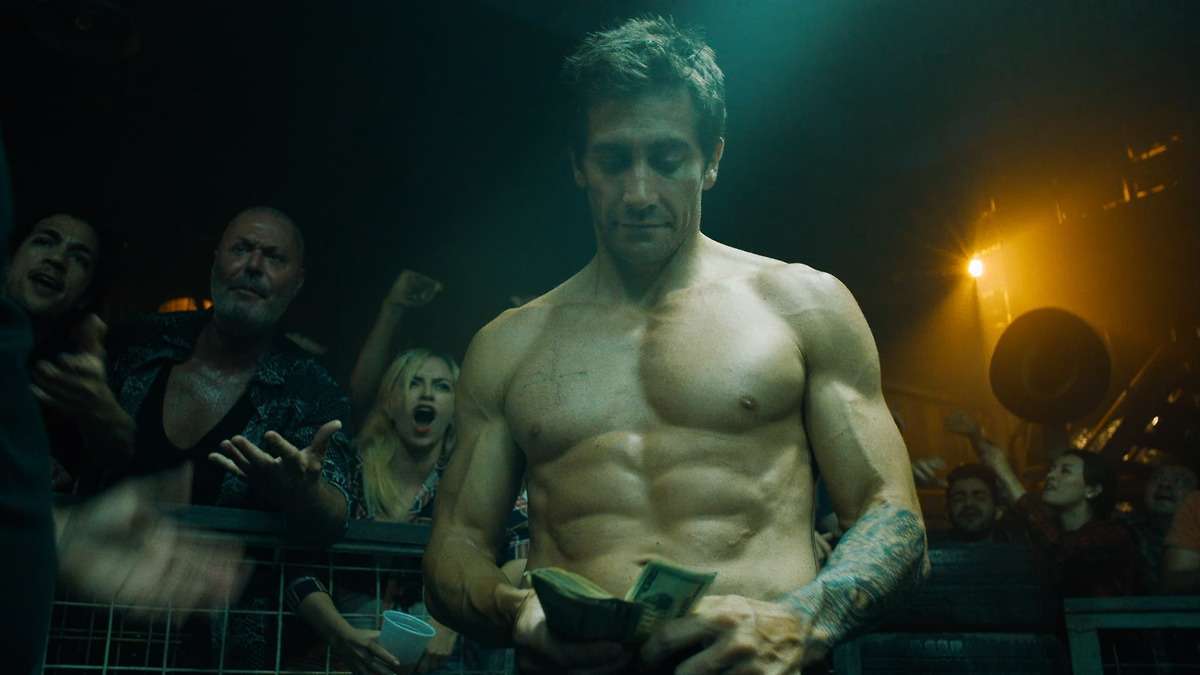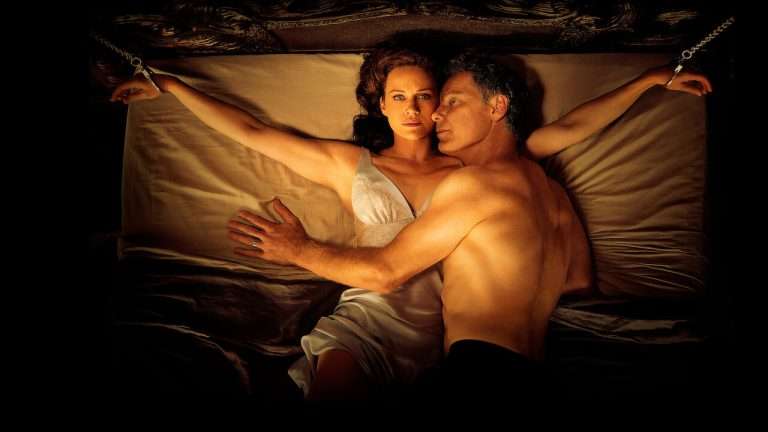Jake Gyllenhaal is a charismatic actor. However, we have rarely seen him in roles that require merely flaunting his charm. His career-best performances from “Nightcrawler” and “Brokeback Mountain” had more to do with subtlety and less with showiness. A similar case can be made for his nuanced performances in “Prisoners” and “Zodiac.” However, Doug Liman’s “Road House” gives him an opportunity to flex his muscles and drive the narrative through his mere presence. He appears similar to the likes of Schwarzenegger or Stallone, where he is the reason why the film works at some level.
“Road House” is a reimagining of the 1989 film by the same name, starring Patrick Swayze, which wasn’t well received by the critics at the time. Later on, it received a cult following, which often results in an insufferable bunch of fans owing to their undying devotion to the original. That doesn’t mean Liman’s work is groundbreaking or remakes are creatively richer in general. Still, what works in Liman’s film is a certain sense of earthiness, similar to Jeff Nichols’ works, although this is not nearly as brilliant.
“Road House” evokes a sense of particular place and time. It achieves a feeling of unhurriedness without any emphasis and also without turning itself into a meditative or meandering film. However, the problem lies in its satisfaction to plainly showcase the loads of gratuitous violence. Whenever a fight breaks out on the screen, it is hard to take your eyes off it. Luckily, Jake nails it to the tee! He is not just convincing in this action star persona but excels in it. Seeing this film, I’m convinced he can pull off more of such roles that command gravitas rather than just impressive acting chops.

“Road House” is good and occasionally thrilling in its fight scenes. They look ugly when needed and neatly choreographed when necessary. However, the chief issue is that there’s not much to it besides that! The film excels in these tiny bits and then goes back to lackluster character development. Jake plays a scarred ex-UFC fighter, Elwood Dalton, who is an ex-fighter for usual and predictable reasons. One day, Frankie (played by Jessica Williams) notices him in a boxing ring.
She realizes that he is still revered by this crowd, who fear and admire him. Frankie hires Elwood as a bouncer in her Florida Keys roadhouse – to help her take care of the local scoundrels – who destroy her property and create a nuisance for her other customers. Elwood deals with them with his suave charm. He always has a smile on his face, not because of smugness but because of confidence. Jake sells this bit exceptionally well through his performance.
Later on, Elwood meets Ellie (played by Daniela Melchior), who works at the town’s nearest hospital. Things are revealed to him about this new place as they always do. These things shape his perspective about this new land. He realizes that his bouncer gig has to do with more than just beating up raging men. There’s a ‘stick it to the man’ angle to his job, which he learns a while later. So, he wonders. Does he want to return to a life of chaos? Or should he keep his life simple as it is? That’s pretty much the dilemma, i.e., the conflict in the film.
“Road House” explores practically nothing more about these characters and psyche than what you would gather from my description of its plot. The emotional core is fairly thin, and it works because of the committed acting performance, mostly by Jake and partially by Daniella. Jessica does not have enough material to work with to show what she is capable of. The likes of Arturo Castro and Conor McGregor bring up occasional chuckles for wildly different reasons!
Billy Magnussen plays a smug, spoiled, rich brat of a local crime lord figure. However, his character isn’t a force to reckon with. It is rather McGregor’s near-psychotic killing-machine character, who will fight with you just for the kicks! Still, despite being a compilation of fights, these supporting characters remain one-dimensional. So, despite Jake Gyllenhaal’s committed, charisma-driven performance, “Road House” is ultimately a forgettable affair.







![Kotoko [2011]: A Vicarious Study of a Schizophrenic Paranoid Mother](https://79468c92.delivery.rocketcdn.me/wp-content/uploads/2017/07/Kotoko-Cocco-1-768x442.jpg)
![Séance on a Wet Afternoon [1964] Review– A Visually Entrancing and Superbly Written Character Study](https://79468c92.delivery.rocketcdn.me/wp-content/uploads/2021/10/Seance-on-a-Wet-Afternoon-1964-768x432.jpg)